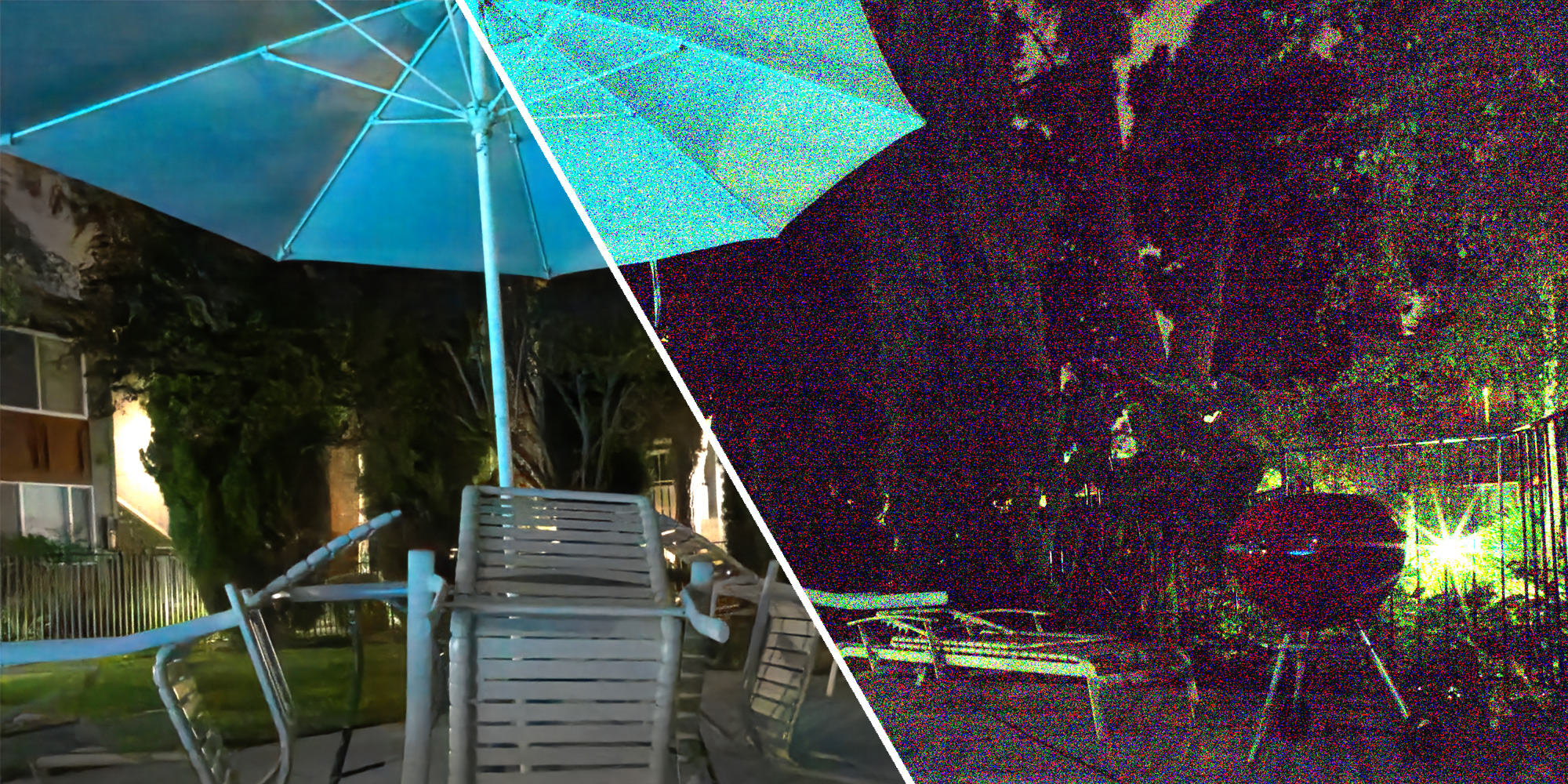Imaging in low light is challenging due to low photon count and low SNR. Short-exposure images suffer from noise, while long exposure can lead to blurry images and is often impractical. A variety of denoising, deblurring, and enhancement techniques have been proposed, but their effectiveness is limited in extreme conditions, such as video-rate imaging at night. To support the development of learning-based pipelines for low-light image processing, we introduce a dataset of raw short-exposure nighttime images, with corresponding long-exposure reference images.
Using the presented dataset, we develop a pipeline for processing low-light images, based on end-to-end training of a fully convolutional network. The network operates directly on raw sensor data and replaces much of the traditional image-processing pipeline, which tends to perform poorly on such data. We report promising results on the new dataset, analyze factors that affect performance, and highlight opportunities for future work.
Credits:
University of Illinois at Urbana – Champaign Intel Labs


